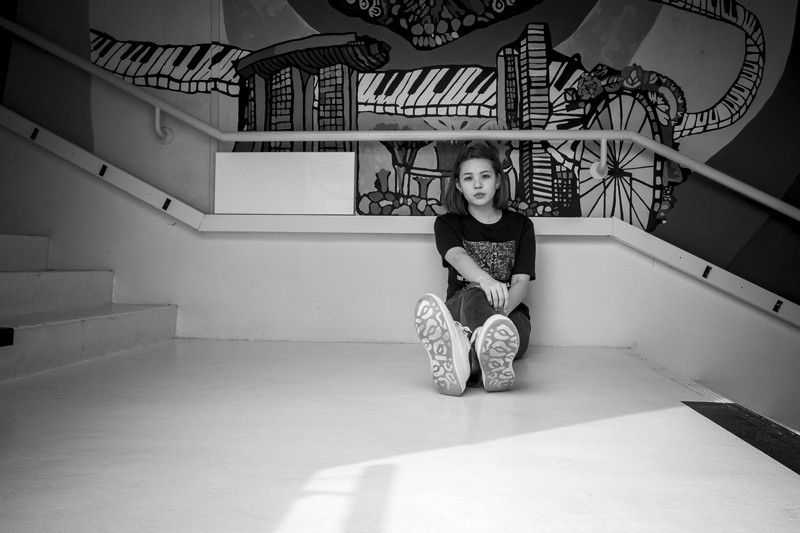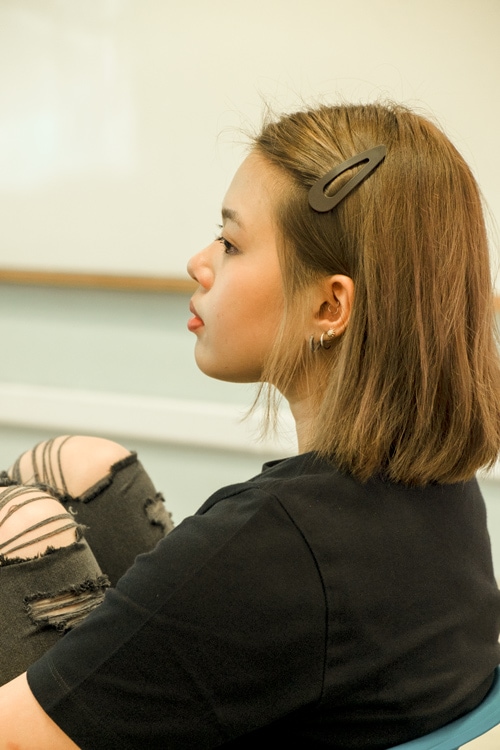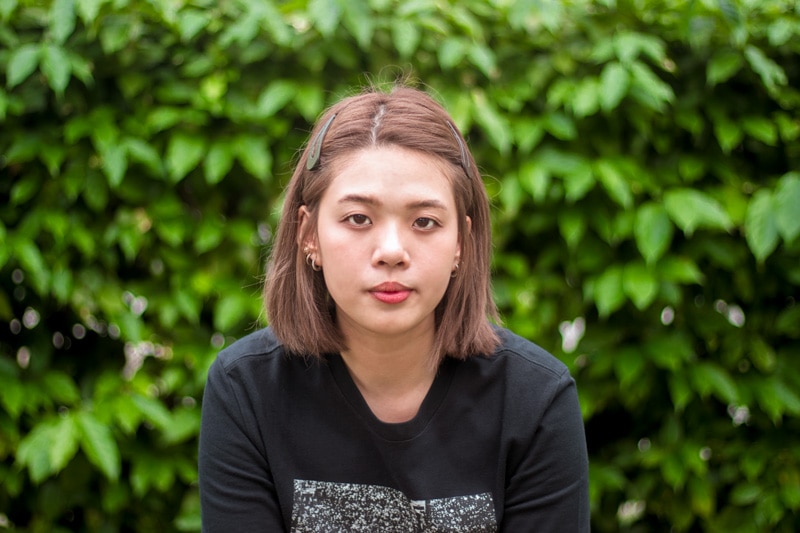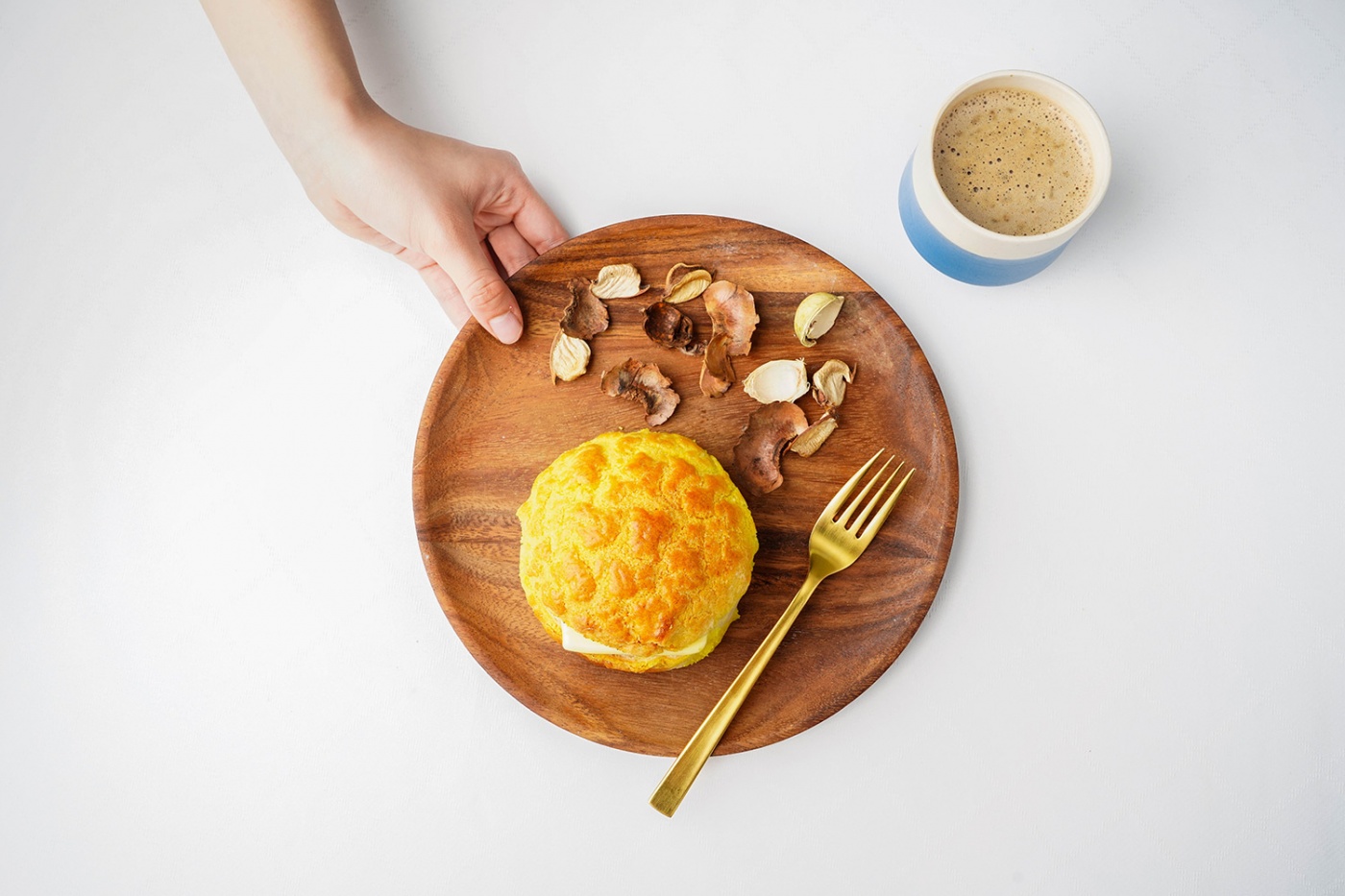How a Humble Bun Inspired a Business
The endearing charm of 21-year-old baker Hoh Loyi isn’t in just her bread, but in the courageous pursuit of her dreams.
In a nondescript cha chaan teng tucked away in an obscure corner of Prince Edward in Hong Kong, Hoh Loyi worked slavishly over the stove. Her hair was pulled up in a messy bun, with a few wispy strands framing her slender face. Beads of sweat dotted her forehead like luminous pearls, as her eyes were squinted into two narrow slits of intense concentration. She was awaiting the birth of her greatest creation; a labour of love and joy. Once the timer went off, she went over to the oven and opened it. An intense, buttery smell wafted out and encircled her like the warmth of a summer’s day. With bated breath, she gingerly picked up her tender creation and sank her teeth into it. The sweet taste of success flooded her taste buds, as the pillowy soft bread yielded to her bite. Finally, after so many rounds of experimentation, she had perfected the bo lo bao, in all it’s buttery and crumbly glory.
Fast forward to two years later, Loyi is now back in Singapore embracing her most exciting creation, eager to feed a nation where eating is the number one pastime. The young founder of Champion Bolo Bun started her business online in 2019 and is planning to open her first physical outlet in Singapore this June. Here, you will not find trendy pastries or elaborate cupcakes. The main (and only draw) is the bo lo bao—a sweet bun with a crispy, cookie-like crust resembling a pineapple—baked to a perfect golden brown and full of textural crunch. While this bun is ubiquitous in Hong Kong, it is less commonly seen in Singapore, prompting Loyi to turn it into a viable business opportunity.

This conviction backed by intuition, has made the bright-eyed ingenue a business owner, with no less than 30 interested investors. “I have people putting almost S$660,000 worth of funds into my company,” says the 21-year-old. Although it’s been known that women have a tougher time raising capital, Loyi faces none of that. The challenge lies in communicating with these investors. “How do I share my ideas with them? How do we talk about business?” she asks. “The age difference makes it difficult because many of them are so much older than me, but I am still learning.”
Enthralled by the intricacies of bread-making, Loyi started her journey into a world of flour and yeast at 12, when she would tinker around the kitchen and experiment with the oven. In secondary school, she ended up taking Food and Nutrition as an O-Level subject, but never thought that it would amount to anything. However, upon graduation, Loyi was forced to consider what she really wanted to do—and in the spirit of Robert Frost’s “The Road Not Taken”, she ditched convention to pursue her passion, which was baking. “I wasn’t keen on going to polytechnic or junior college,” she says. “There are also schools like At-Sunrise in Singapore, but I felt that they could not fulfil my baking needs as I wanted to learn more than just making bread.”
Eventually, Loyi decided to look beyond the shores of Singapore and enrolled in Taipei’s China Grain Products Research & Development Institute, a baking school that taught the fundamentals and techniques of bread-making. Although there was a lingering fear of both the unknown as well as going left-field, Loyi’s trepidation was abated with the generous support of her parents. “I am thankful that my parents have always encouraged me to do whatever I like. They told me not to determine success as a number or figure, and as long as I am happy, it is enough for them,” she says.

Like any young person living alone for the first time overseas, Loyi faced her fair share of struggles. “At the start, I didn’t know how to live alone and was not able to be independent,” she confesses. “My school was very far from the city. It was all the way on top of a hill and I felt like I would never reach the top. I dreaded the hour-and-a-half commute every day.” Despite the agonising distance that tested her mettle, she found solace in a tribe of bakers (her classmates), who were as passionate about the craft as she was. In the words of Spanish writer Miguel de Cervantes Saavedra, “All sorrows are less with bread.” And in her six months there, they would explore the streets of Taipei to unearth the newest bakeries and bread trends, developing an unbreakable bond through the love of bread.
In the new year of 2017, Loyi felt an urge to visit Hong Kong, the undisputed mecca of the bo lo bun, so she flew there without a plan. I got a part-time job and worked in the kitchen of a tea house. I was impressed with how in such a tiny kitchen, they were able to produce such great food really quickly—and I wanted to learn their secret to efficiency,” she professes. The rigours of such harsh places can be particularly brutal for a newbie if they do not learn the ropes fast, but Loyi remained unfazed. “I could not keep up with the speed at first and it was stressful; they were all older men in the kitchen and I felt intimidated because I was the only young girl there. But everyone was nice to me. Eventually, I caught up,” she says. Her tenacious attitude impressed the head chef of the cha chaan teng so much that three months later, he introduced her to a chef of another tea house in the Prince Edward area. “This cha chaan teng sells 3,000 bo lo buns a day. But I am sworn to secrecy, so I cannot say the name of the place,” she laughs. “The teacher said that I was the first and only student; he’s my benefactor who personally taught me his own secret recipe.”
Armed with her new secret bo lo bun recipe, the baker returned back to Singapore in 2018, where she continued to experiment and finally came up with a formula she was satisfied with. To grow her audience, she started an Instagram account @bolobun_, an online website, and took part in public events like the World Food Fair held at Singapore Press Holdings in October 2019 and Artbox in November 2019. “We always had the longest queue for all our events. After Artbox, more investors approached me and it was proof to me that my buns were likeable by everyone of all ages,” she declares.

Wu Pao-chun, the Taiwanese baker who clinched the Master Baker title in the 2010 Bakery Masters competition in Paris, is Loyi’s biggest culinary inspiration. That also explains why she chose to go to Taipei, instead of Paris to learn her baking. “The baking standards in Taipei are very high, so I felt like I could learn from the best. The precision that comes with making Asian bread is incredible! The Taiwanese way of bread-making is like the Japanese—every single step and ingredient matters. Also, I grew up eating Asian bread so I prefer eating that over croissants,” she chuckles. There is a strong sense of Asian pride in Loyi’s creations. A well-made piece of bread isn’t just about the taste, but in the execution that’s made with loving hands—almost as if each touch, knead, gives the dough a ‘life force’ of its own. When I ask what makes her bo lo buns the best, Loyi says, “It’s my heart. Every baker can tell you that if you put all your heart into baking the product, there will be a difference. If you are baking just for the sake of it, the bread will taste bad.”
Loyi’s hoydenish ways and how she commits herself wholeheartedly to the pleasures of making bread are traits that define this youthful baker. But, beyond that, her buns are a reflection of her fortitude, unwavering mettle and how an unconventional path can be far more satisfying than a well-trodden one.


